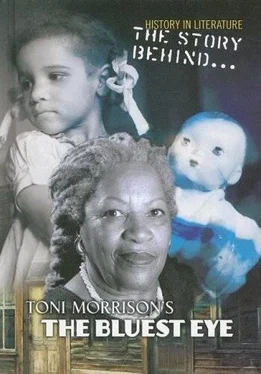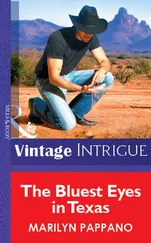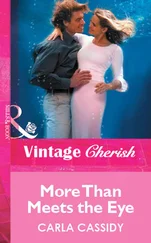"Eleven dollars. Five-fifty for children under twelve." Cholly had twelve dollars and four cents. "How old you be?"
"Just on twelve, sir, but my mama only give me ten dollars."
"You jest about the biggest twelve I ever seed."
"Please, sir, I got to get to Macon. My mama's sick."
"Thought you said you mama give you ten dollars."
"That's my play mama. My real mama is in Macon, sir."
"I reckon I knows a lying nigger when I sees one, but jest in case you ain't, jest in case one of them mammies is really dyin' and wants to see her little old smoke before she meets her maker, I gone do it." Cholly heard nothing. The insults were part of the nuisances of life, like lice. He was happier than he had ever remembered being, except that time with Blue and the watermelon. The bus wasn't leaving for four hours, and the minutes of those hours struggled like gnats on fly paper-dying slow, exhausted with the fight to stay alive. Cholly was afraid to stir, even to relieve himself. The bus might leave while he was gone. Finally, rigid with constipation, he boarded the bus to Macon. He found a window seat in the back all to himself, and all of Georgia slid before his eyes, until the sun shrugged out of sight. Even in the dark, he hungered to see, and only after the fiercest fight to keep his eyes open did he fall asleep. When he awoke it was very well into day, and a fat black lady was nudging him with a biscuit gashed with cold bacon. With the taste of bacon still in his teeth, they sidled into Macon.
At the end of the alley he could see men clustered like grapes.
One large whooping voice spiraled over the heads of the bended forms. The kneeling forms, the leaning forms, all intent on one ground spot. As he came closer, he inhaled a rife and stimulating man smell. The men were gathered, just as the man in the pool hall had said, for and about dice and money. Each figure was decorated some way with the slight pieces of green. Some of them had separated their money, folded the bills around their fingers, clenched the fingers into fists, so the neat ends of the money stuck out in a blend of daintiness and violence. Others had stacked their bills, creased them down the middle, and held the wad as though they were about to deal cards. Still others had left their money in loosely crumpled balls. One man had money sticking out from under his cap. Another stroked his bills with a thumb and forefinger. There was more money in those black hands than Cholly had ever seen before. He shared their excitement, and the dry-mouthed apprehension on meeting his father gave way to the saliva flow of excitement. He glanced at the faces, looking for the one who might be his father. How would he know him? Would he look like a larger version of himself? At that moment Cholly could not remember what his own self looked like. He only knew he was fourteen years old, black, and already six feet tall. He searched the faces and saw only eyes, pleading eyes, cold eyes, eyes gone flat with malice, others laced with fear-all focused on the movement of a pair of dice that one man was throwing, snatching up, and throwing again. Chanting a kind of litany to which the others responded, rubbing the dice as though they were two hot coals, he whispered to them. Then with a whoop the cubes flew from his hand to a chorus of amazements and disappointments.
Then the thrower scooped up money, and someone shouted, "Take it and crawl, you water dog, you, the best I know." There was some laughter, and a noticeable release of tension, during which some men exchanged money. Cholly tapped an old white-haired man on the back. "Can you tell me is Samson Fuller 'round here somewhere?"
"Fuller?" The name was familiar to the man's tongue.
"I don't know, he here somewhere. They he is. In the brown jacket." The man pointed. A man in a light-brown jacket stood at the far end of the group. He was gesturing in a quarrelsome, agitated manner with another man. Both of them had folded their faces in anger. Cholly edged around to where they stood, hardly believing he was at the end of his journey. There was his father, a man like any other man, but there indeed were his eyes, his mouth, his whole head. His shoulders lurked beneath that jacket, his voice, his hands-all real. They existed, really existed, somewhere. Right here. Cholly had always thought of his father as a giant of a man, so when he was very close it was with a shock that he discovered that he was taller than his father. In fact, he was staring at a balding spot on his father's head, which he suddenly wanted to stroke. While thus fascinated by the pitiable clean space hedged around by neglected tufts of wool, the man turned a hard, belligerent face to him. "What you want, boy?"
"Uh. I mean… is you Samson Fuller?"
"Who sent you?"
"Huh?"
"You Melba's boy?"
"No, sir, I'm…" Cholly blinked. He could not remember his mother's name. Had he ever known it? What could he say? Whose boy was he? He couldn't say, "I'm your boy."
That sounded disrespectful. The man was impatient. "Something wrong with your head? Who told you to come after me?"
"Nobody." Cholly's hands were sweating. The man's eyes frightened him. "I just thought… I mean, I was just wandering around, and, uh, my name is Cholly…" But Fuller had turned back to the game that was about to begin anew. He bent down to toss a bill on the ground, and waited for a throw. When it was gone, he stood up and in a vexed and whiny voice shouted at Cholly, "Tell that bitch she get her money. Now, get the fuck outta my face!"
Cholly was a long time picking his foot up from the ground. He was trying to back up and walk away. Only with extreme effort could he get the first muscle to cooperate. When it did, he walked back up the alley, out of its shade, toward the blazing light of the street. As he emerged into the sun, he felt something in his legs give way. An orange crate with a picture of clasping hands pasted on its side was upended on the sidewalk.
Cholly sat down on it. The sunshine dropped like honey on his head. A horse-drawn fruit wagon went by, its driver singing: "Fresh from the vine, sweet as sugar, red as wine." Noises seemed to increase in volume. The clic-cloc of the women's heels, the laughter of idling men in doorways. There was a streetcar somewhere. Cholly sat. He knew if he was very still he would be all right. But then the trace of pain edged his eyes, and he had to use everything to send it away. If he was very still, he thought, and kept his eyes on one thing, the tears would not come. So he sat in the dripping honey sun, pulling every nerve and muscle into service to stop the fall of water from his eyes.
While straining in this way, focusing every erg of energy on his eyes, his bowels suddenly opened up, and before he could realize what he knew, liquid stools were running down his legs. At the mouth of the alley where his father was, on an orange crate in the sun, on a street full of grown men and women, he had soiled himself like a baby. In panic he wondered should he wait there, not moving until nighttime? No. His father would surely emerge and see him and laugh. Oh, Lord. He would laugh. Everybody would laugh. There was only one thing to do. Cholly ran down the street, aware only of silence. People's mouths moved, their feet moved, a car jugged by-but with no sound. A door slammed in perfect soundlessness.
His own feet made no sound. The air seemed to strangle him, hold him back. He was pushing through a world of invisible pine sap that threatened to smother him. Still he ran, seeing only silent moving things, until he came to the end of buildings, the beginning of open space, and saw the Ocmulgee River winding ahead. He scooted down a gravelly slope to a pier jutting out over the shallow water. Finding the deepest shadow under the pier, he crouched in it, behind one of the posts. He remained knotted there in fetal position, paralyzed, his fists covering his eyes, for a long time. No sound, no sight, only darkness and heat and the press of his knuckles on his eyelids. He even forgot his messed-up trousers. Evening came. The dark, the warmth, the quiet, enclosed Cholly like the skin and flesh of an elderberry protecting its own seed. Cholly stirred. The ache in his head was all he felt. Soon, like bright bits of glass, the events of that afternoon cut into him. At first he saw only money in black fingers, then he thought he was sitting on an uncomfortable chair, but when he looked, it turned out to be the head of a man, a head with a bald spot the size of an orange. When finally these bits merged into full memory, Cholly began to smell himself. He stood up and found himself weak, trembling, and dizzy. He leaned for a moment on the pier post, then took off his pants, underwear, socks, and shoes. He rubbed handfuls of dirt on his shoes; then he crawled to the river edge. He had to find the water's beginning with his hands, for he could not see it clearly. Slowly he swirled his clothes in the water and rubbed them until he thought they were clean. Back near his post, he took off his shirt and wrapped it around his waist, then spread his trousers and underwear on the ground. He squatted down and picked at the rotted wood of the pier. Suddenly he thought of his Aunt Jimmy, her asafetida bag, her four gold teeth, and the purple rag she wore around her head. With a longing that almost split him open, he thought of her handing him a bit of smoked hock out of her dish. He remembered just how she held it-clumsy-like, in three fingers, but with so much affection. No words, just picking up a bit of meat and holding it out to him. And then the tears rushed down his cheeks, to make a bouquet under his chin.
Читать дальше











